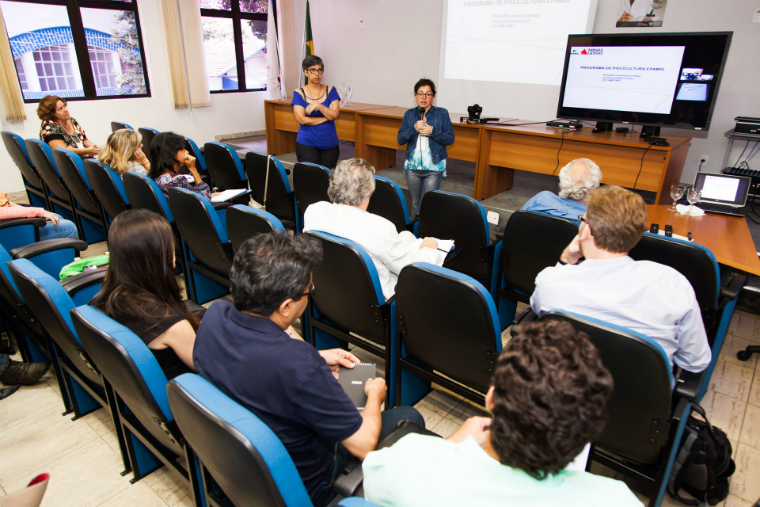Next month, a new edition of the panel will be held in Espírito Santo
The key challenges related to the resumption of the affected economic and productive activities featuring fishing, aquaculture and sand extraction, were discussed during the First Technical Panel on Aquaculture and Fisheries Activities, held on January 19 in Belo Horizonte (MG). Organized by the Renova Foundation, the event gathered academic representatives, technical institutions, regulatory and supervisory bodies to reflect, in a cooperative manner, on possible alternatives for the restoration of these activities in the area of the Doce River basin.
“We value dialogue and do not believe in ready-made answers. The meeting is a learning moment that enables the different stakeholders involved to work together to find solutions to this very complex issue, “says Estaneslau Klein, who is involved in the Aquaculture and Fisheries Activities Resumption Program.

First Technical Panel on Aquaculture and Fisheries Activities, held on January 19 in Belo Horizonte (MG). | Photo: João Bosco
During the event, data and diagnoses of previous studies on the subject were presented, as well as implemented experiences and their results, followed by the analysis of the situation after the Fundão dam collapse. With a multidisciplinary approach, the experts discussed challenges and opportunities from a social, economic and environmental perspective that will contribute to the integrated work to be developed by Renova.
These discussions will contribute to the development of the scope of the program. One of the key challenges is to integrate the environmental remediation work, which will create conditions for the restoration of the river activities, with the stimulation of aquaculture and the sustainable production of fish in the region, respecting and ensuring the way of life, interests, professional and productive vocations of the public directly affected.
The next step is the commitment of fishermen, fish farmers and sand extractors that were affected and their involvement in defining the actions that need to be worked on.
The informal discussion was attended by representatives of the Ministry of Agriculture, Livestock and Water Supply, the State Department of Environment and Sustainable Development, Sebrae-MG, Federal University of Minas Gerais, Epamig, Emater, among others. Next month, a new edition of the panel will be held in Espírito Santo.
